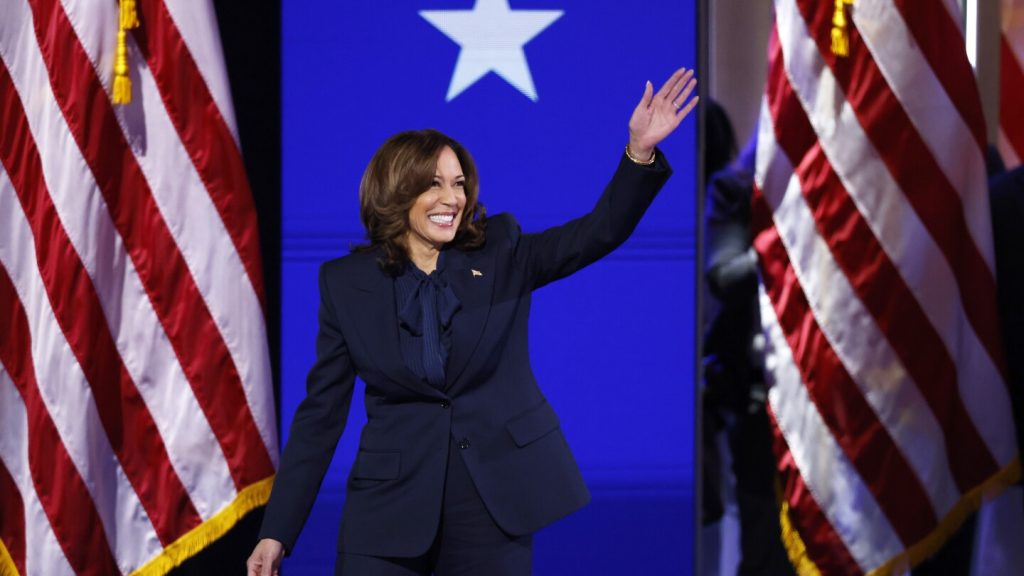Despite the ongoing conflict in Gaza, Vice President Kamala Harris made efforts to address the divisive issue within the Democratic Party during her speech accepting the party’s presidential nomination. While reiterating her support for Israel’s right to defend itself, Harris also acknowledged the suffering and destruction caused in Gaza by the conflict, emphasizing the importance of addressing the needs of Palestinians. She mentioned working with President Joe Biden on a cease-fire deal that would release hostages held by Hamas in Gaza, as well as promoting dignity, security, freedom, and self-determination for Palestinians.
Harris’s approach to the conflict aligns closely with Biden’s position of strong support for Israel, but with a more pronounced focus on the plight of Palestinians. This strategy is aimed at reconciling divisions within the Democratic Party over the war in Gaza, as well as striking a balance between supporting Israel and advocating for the rights of Palestinians. Despite efforts to address the issue, Harris risks disappointing activists who want a more explicit change in the U.S. stance on providing arms to Israel, which have been used in attacks that resulted in civilian casualties.
The Democratic National Convention, where Harris delivered her speech, saw limited disruptions from protests related to the war in Gaza. While some delegates protested outside the venue, calling for greater representation of Palestinian Americans on stage, the convention remained largely unaffected by the demonstrations. Harris’s nomination was met with excitement and support from the party, overshadowing any dissenting voices within the Democratic ranks. The tensions over the war did not derail the convention, as organizers managed to maintain control and prevent widespread disruptions.
Efforts to provide a platform for voices critical of U.S. policy on the conflict were met with resistance from convention organizers, who declined requests to include a Palestinian American speaker on stage. This decision led to further discontent among uncommitted delegates who had abstained from backing a candidate in protest over the war. The absence of representation for Palestinian Americans at the convention highlighted ongoing divisions within the Democratic Party and the broader challenges of addressing the complexities of the Israeli-Palestinian conflict. Despite these challenges, Harris’s approach to the issue seeks to bridge the gap between conflicting interests and priorities within the party.
Overall, Vice President Kamala Harris’s efforts to navigate the sensitive issue of the Israeli-Palestinian conflict reflect the complexities and divisions within the Democratic Party. While reiterating support for Israel’s security, Harris also emphasizes the importance of addressing the humanitarian needs of Palestinians and working towards a cease-fire deal. The challenges of balancing these competing interests were evident during the Democratic National Convention, where tensions over the war in Gaza were present but did not disrupt the overall enthusiasm for Harris’s nomination. Moving forward, Harris’s approach to the conflict will continue to be scrutinized by activists and party members seeking a more definitive stance on U.S. policy towards Israel and the rights of Palestinians.


